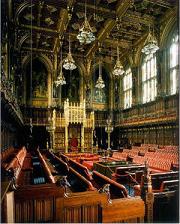 I find my father difficult to write about and yet that time is about now when … well, you know.
I find my father difficult to write about and yet that time is about now when … well, you know.
Not a tall man but with wiry strength from hard work, his hands were strong and his hair receded somewhat later but he was never bald. He wasn't a bad looking chap.
It was a question of which got him first, in the end - the emphysema, the hepatitis or the leukemia. From the war years, it was. I didn't understand what was going on because:
a] I was still too young;
b] I'm not always au fait with this sort of thing;
c] He was a bit remote.
I didn't understand why this was but he was always a distant person and even when we did things together, like paint the walls - he was an expert - I'd always feel he was critically judging me, even though he usually praised the job, except for this little qualification or that.
He was a perfectionist.
Anything he touched he did well, until his later years. I wanted a sailboard and he built it, complete with rudder. I wanted a treehut and he built it. Some of it rubbed off and I've since built sheds and fences of reasonable, unwobbly quality.
I once built a small pyramid. He built a complete house.
He wasn't really stern but just seemed that way - one of the old school who neither suffered fools nor bad manners. Especially the latter. I never heard him use bad language. Actually, now I come to think of it, I really can't recall a swearword ever passing his lips.
He'd get angry though and very quickly. My mother, bless her heart, was … well … well … she had the capacity to provoke with a misplaced word or would do something silly, like not understand how to put up the tent on our annual seaside holiday.
I was with my father on this - how could she not understand the instruction when we'd done this thing every year since I could remember, in exactly the same way? I didn't like how he verbally mauled my mother at these times and in these situations, one stayed mauled.
On the other hand, my mother was as tough as nails and never blanched or even flinched. You have to understand we're talking only words here - fluff and foam - nothing of any lasting substance.
They always presented a united front to me so it was only years later I ever found out he never touched anyone in anger, even under severe provocation - he'd say some pretty choice things, straight to the heart of the issue and then he'd withdraw and go to the workshop.
I never knew how sick he really was. When he'd sit in that huge brown armchair, doing nothing but tap with the fingers of his right hand on the armrest, I thought he might be getting a bit lazy.
Fool - me.
He was never lazy and when I went to his workplace for the first time ever, on gold watch day, it wasn't a gold watch but a very nice brown suitcase for his upcoming first trip out of the country since the war. My mother made them go.
One or two of his underlings spoke to me of him and it seems he was as hard a taskmaster at his workplace as he was at home. This was at a time when these values were beginning to go out of fashion, especially with the young. They didn't actually say anything, of course - I just read that in their manner.
Truth was that they respected him but didn't quite know how to handle him, like us, I suppose.
He was a mason for some time and knew the local masonic community and no - he never showed me the handshake but I did see his paraphernalia once. Interesting stuff. Looked Jewish to me. He didn't remain.
Love?
Aye, there's a word, isn't it? I think of D.H. Lawrence and his father sometimes, of sons of that era and their fathers.
Love?
Probably, in that highly respected way and certainly he commanded loyalty. But he kept his own counsel so much and I'd have liked to have been closer but that was not to be.
Love?
Compassion, certainly, especially when I saw his later suffering. I really can't say "love" to a man.
I know I've never ever felt the need for a father figure nor a mother figure and perhaps that came from them. I naturally feel the need to protect, a bit like a mother hen and the need to defend - those instincts course through the veins.
Love?
Well ... yes. All right. Yes.
So now he's departed and she's departed and all of them have departed and wives have departed and girlfriends have departed and friends are in other parts of the world and still I go on.
Ellee Seymour wrote earlier, in a comment, that:
I always light a candle and place it in front of my father's photo and some flowers when it is his anniversary.
That's what I'm going to do now and then say: "Forgive me, father if I haven't represented you as I should. You know I did my best."
I think he's more kindly than I give him credit for. I believe he's possibly looking in on me right now. I think he'll not see the necessity for this post and will think the "forgive me, father" is gratuitously overdramatic but maybe he won't be too annoyed overall.
He'll like the shot of the Five Rise Locks. Pity I don't have a good one of Beckfoot Bridge.
April 26th, 04:00.
 I just did it and it's easy:
I just did it and it's easy:





